This Film Is No Longer Available Due To Copyright Infringement
Whenever anyone chooses to make a fan film, the biggest risk that they take is the fact that they are using characters that they don’t own the rights to, and therefore run the risk of getting shut down by the company that does hold the rights to those characters. Of course, it doesn’t happen very often, and there’s the whole “fair use” excuse, often including a disclaimer at the beginning or the end claiming that they are making no profit on this intellectual property and the rights belong to whichever company it may be. On top of that, there are literally dozens of fan films that are made every year, some even get upwards of a million views on YouTube and they are allowed to remain with no consequences whatsoever. But what happens when it’s your project that gets shut down? What rights do you have, what options are out there, and if you’re just a fan that wants to see a good film regardless of who owns the characters, how can you actually get the chance to see it? Unfortunately, when a company chooses to use the dreaded “Copyright Infringement” hammer, there’s not really much you can do. And if they are the ones who own the character, isn’t it really their right to exercise?

Fan films have been around for decades. One of the earliest instances of a fan film was an old black and white movie made in 1966 called The Wild World of Batwoman. It was an awful, low budget movie that barely resembled the DC property outside of the batsymbol, but DC still sued the production company, Associated Distributors Productions for copyright infringement. The surprising thing is that DC lost this lawsuit, partly due to an added scene where the movie explains that they are “synthetic vampires”. it was only after the Batman franchise waned that the movie was re-released under the title “She Was a Hippy Vampire”. Also around this time famed artist Andy Warhol made a Batman film, also without permission from DC where the caped crusader fought Dracula of all people. This film was only shown at certain art exhibitions of his and to my knowledge has never gotten out as a public copy.
After Star Wars came out, and especially in the 80’s and 90’s there came along a lot of Star Wars, and also some Star Trek fan films. The notable thing about the Star Wars fan films is that George Lucas and Lucasfilm under him were very tolerant and accepting of any and all fan films, even going so far as to hold an official fan film festival each year starting in 2002, and while it initially only welcomed documentary and parody entries, it eventually included dramatic fan films in later years before being discontinued in 2012. As far as I could find, there has yet to be a Star Wars fan film that has been shut down due to copyright infringement since the property has been bought by Disney, but time will tell if that holds true in the coming years.
The next fan film to really make major waves was the Sandy Collora short film Batman: Dead End. Collora was a special effects make up artist turned director who created this short using real cinematic techniques, and big-budget level creature designs and make up effects to create movie-accurate models for the Aliens franchise Xenomorphs and three separate Predators, not to mention the Joker make up and Batman suit. It was dark, it had Hollywood level stunt choreography and graphic novel look and feel to it. It debuted at the San Diego Comic Con in 2003 and was hailed by many famous comic book fans like Kevin Smith saying that it was “possibly the truest, best Batman movie ever made”. In fact, San Diego Comic Con would often hold a fan-film festival each year until it finally stopped the practice of allowing fan-films in 2005 when it started getting more Hollywood involvement. Partly due to these legal issues as well as a push to become a more official, judged event rather than just a general showcase for films.
In 2008, during production of 20th Century Fox’s Max Payne movie, there was also a fan film in the works called Max Payne. Filmmaker Fergle Gibson received a cease & desist letter from Fox asking him to stop production due to copyright infringement. He has since changed the name, but is still working towards making his own Max Payne movie which is now called “Payne and Redemption”. The fan-film is on a much more extended timeline with no current release date in sight due to the common issue that fan-films are made with a budget coming from people with middle class jobs and not that much money to toss around towards a film that can never turn a profit.
Often when a fan film is shut down, the biggest question is “why this project and not that one?”, especially going forward as there are so many fan films out there, including high profile ones that garner millions of hits and spread across all sorts of various online outlets, like Adi Shankar’s “bootleg” films Dirty Laundry featuring Thomas Jane as the Punisher and Truth in Journalism featuring Ryan Kwanten as Eddie Brock/Venom, as well as the two recent Wonder Woman concept trailers by Jesse V. Johnson and Rainfall Films.
This is one case where I would point to a few things. One is that these are done by people with legitimate Hollywood careers. They have connections, those connections may be minor, they may be major, I don’t know for sure but that could easily be a factor. Two is that these are all very well done with high production values, legitimate special effects, and are wildly popular with fans. And three is the fact that all of these projects create a generally original vision and only use the actual Copyrighted character in a minor way. Adi Shankar’s films are especially secretive about what they actually are, leaving the “reveal” of the character until the very end. When the Thomas Jane short first came out, it was just titled “#DirtyLaundry”. It wasn’t until after the film had been available for a while did the name Punisher get officially attached to the title of the video. There are really only three things that actually link Dirty Laundry to the Punisher: Thomas Jane is the actor, who also played the Punisher in the 2004 film, there is a line about “punishment”, and there is the skull t-shirt at the very end of the film. That’s it. There is a similar methodology with Truth in Journalism where it is shot in black & white, there are some names thrown around and visible in the background that fans of the character will recognize, and the reveal of Venom at the end is very grainy, muddled, and unclear. The Wonder Woman shorts are much more symbolic of the character, but they are also from DC and Warner Bros/DC have typically been more lenient than Marvel as far as fan films go. Partly because of the attention that Adi Shankar’s films have gotten as well as the attention from the recent shutdown of the Mike Pecci Punisher short, Adi Shankar has released a statement about the situation as well.
There have even been a few instances of fan films either getting proper rights to a character, or later becoming an official project. Most famously the Mortal Kombat short by Kevin Tancharoen was made into an official webseries which is currently on its second season and is getting high ratings and praise on the Machinima website. Machinima has also worked with Microsoft to produce official live action content based on the video game Halo. The recent Judge Dredd fan film Judge Minty successfully got permission from Rebellion who owns the copyright, to show their film at festivals. But having all these things going for you doesn’t always amount to a free ride. Earlier this year, there was a project supported by Machinima called Dark Knight Legacy which created a short featuring Nightwing, the Red Hood, and a couple other notable Batman characters. They started up a Kickstarter to gain funding to turn it into a webseries, but it was ultimately shut down with a copyright infringement notice by Warner Bros. The going theory on this project is the fact they they were using the Dark Knight title to make it sound too much like it was a more official tie-in to Nolan’s Dark Knight trilogy. According to Woody Tondorf who works on the project, “There’s really not much to say about what happened. We went looking for funds for a franchise we didn’t own and the people who owned the characters told us to cut it out, which they are 100% allowed to do. It’s nothing against the short itself – that’s self-funded and the video doesn’t run ads so no money is made, it’s just the fundraising we can’t do.” … “We’re not the first, or the second Nightwing series to look for funding this year, and we weren’t even the most expensive campaign.”
From the outside looking in, there appears to be no rhyme or reason to which projects get shut down, which are left alone, and which are eventually allowed to return without any repurcussions. The only trend that I’ve seen is that the most amateurish ones are the most likely to escape notice, it’s only the higher quality ones that gain traction and popularity with the fans that end up getting the axe. The wording that has been used in some instances is that “Your actions confuse consumers into believing that they are viewing an authentic Marvel production or one sponsored or licensed by Marvel, when they are not.” even if it is clearly labeled as not. There are over a dozen productions that have been hit at one point or another with a shutdown notice, in some cases these shorts or webseries have already been finished, and now they are either no longer able to be seen by the fans, or they are just moved to other venues, like moving from YouTube to Vimeo or other video sharing sites. Something like getting copyright strikes on YouTube could seriously hamper a filmmaker’s ability to generate revenue if they also have original works that they are making ad money on within the same channel. This is exactly what happened to Chris Notarile of Blinky Productions. One day, out of nowhere he was hit with a dozen or so of his videos removed due to a Copyright Infringement notice by Marvel. In fact, every single one of his fan-films based on Marvel characters were taken down. “One morning, I received several emails from the site informing me that 14 of my videos were infringing upon a copyright and they were subsequently removed. I did not attempt to challenge this news. I went the flow and left it at that. Like any filmmaker I am saddened to know that my films were taken down and can no longer be seen by the public, but this sort of thing is part of the nature of fan filmmaking. If you do not own the content 100% you run the risk of having your video taken down. At the end of the day, its a learning experience and I have walked away from all of this a bit wiser.” – Chris Notarile.
There are also plenty of other success stories that have come from fan material. One of the most recent examples is the megahit softcore porn novel 50 Shades of Grey, which started out as Twilight fan fiction. There’s also the weird case of the film that just recently came out called Escape From Tomorrow, where the filmmakers filmed in Disneyworld and Disneyland without permission, and yet for whatever reason, Disney has currently not stopped them from distributing their movie even though it is filled with trademarked characters all over the background that are being used without express permission from Disney. They even somewhat jokingly have a counter at the top of their official site showing how many hours since release of their movie that they have not been sued by Disney. Not only that, but this isn’t even an attempt at going through the “fair use” law which allows the use of copyrighted material in certain instances though there is no strict definition. Every instance of a possible Copyright Infringment is determined on a case by case basis. Some of the arguments that can be valid in a fair use case include the fact that it’s not done for profit, which is something included as a disclaimer on most fan films, another is to limit the use of those Trademarked elements of the original work, and the strongest one is in the cases of parody which are almost never the target of Copyright Infringement shutdown cases.
One of the more interesting factors in many of these cases is that while it is the overarching company, like Disney, Nintendo, or Warner Bros that shuts down the video or hands out the cease & desist notice, quite often the original creators of the works get notice of these works either before or afterwards and approve of the fan-works. Brian Michael Bendis, a noted comic book writer, has voiced his approval at many fan works based on his writing, like A New Mutant, and The Death of Spider-Man Motion Comic. In some cases, fan approval can even override a company’s attempts to shut down a fan-film. When Marvel Zombies: The Movie was released, it gained a lot of attention and even showed up on G4’s Attack of the Show, shortly afterwards Marvel shut that copy down. According to Jim Ojala, “The cool thing is that loads of fans started reposting everywhere. Marvel couldn’t keep up with it and eventually gave up. Then we officially reposted it on YouTube where it has regained popularity but nothing like the lightning in a bottle of when it was first released. That part of the experience was painful since we’ll never know how many millions of hits we might have received it it was allowed to grow.” But in the end, when you’re working with a character that belongs to someone else, even if it’s a big company, it’s within their rights to not want that vision out in the public representing their character. While there are plenty of cases where there are excellent fan films that have been shut down, there are also cases that might not have happened yet of fan films that don’t treat the character the right way, are not done well, and maybe should be taken down, and then there’s also the official Catwoman movie. I’d love to hear your thoughts on this subject, so be sure to leave a comment below. Until next time, this has been Bubbawheat for Flights, Tights, and Movie Nights.
Posted on October 27, 2013, in Blogs and tagged Blog, fan films, movies, short films, superhero shorts. Bookmark the permalink. 15 Comments.










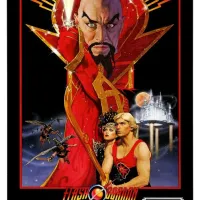
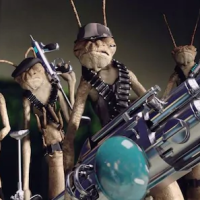



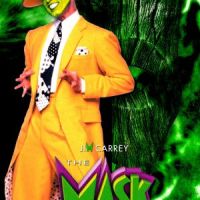

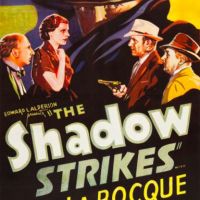
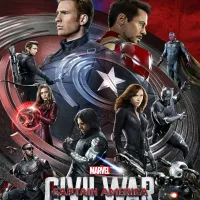
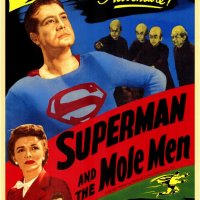
It’s an interesting grey area in the law. Technically “not for profit” isn’t an argument for “fair use” (it makes no such provision), but it can be used to support the argument that the film was being done for legitimate fair use claims such as an academic project or criticism. Of course, in most cases, it’s really a trademark infringement claim that comes into play, and I’m not sure what the “fair use” clauses are there, or if there are any. For example, a typical Batman fan film doesn’t infringe any copyright at all, since they’re not re-using footage from an existing film or copyrighted story content — at least if it’s an original story and not an adaptation of a specific storyline. But it violates the trademark on Batman and his logo.
The problem is, trademark or copyright, fair use is an affirmative defense, not a protection from being sued. Most people can’t afford to mount a defense in the first place, whether they have a legitimate argument or not.
By and large, I agree that it’s within the copyright/trademark holder’s right to shut down these projects. However, I generally respect a company more when they turn a blind eye to benign cases. If the film is arguably damaging to the character (say, a hypothetical film portraying Batman as a child molester), then I think it’s justified to send the takedown notice. And if the film is trying to make money — and I would classify most Kickstarter projects under this heading — then I think it’s warranted. But if it’s just a fan showing their love for the character, I personally am inclined to think the company should gracefully accept it.
I’m still baffled over which projects get the hammer and which don’t. Like the recent Punisher film was heavily based on a specific story arc and was shut down very quickly. The short had filmed and was nearly completed, and it was shut down a mere days after releasing the trailer online, yet there have been other Punisher projects before and after that remain up. The “A New Mutant” was a direct adaptation of a comic story, it was recently taken off of YouTube (though I’m unaware if it was a Copyright strike, or of the teacher’s own volition) but still remains on Vimeo, but The Death of Spider-Man motion comic which uses altered images from the comic itself remains on YouTube. And while I consider myself fairly well-versed as far as fan films go, there’s probably twice as many out there that I’m still unaware of, and probably over a dozen more that have been hit with copyright violation notices that simply go away and don’t make any noise.
I’d like to see more of the fan films go the way of the Mortal Kombat short and use it as a jumping off point to create official content from someone who truly loves and understands the character.
I suspect in a lot of cases, it’s literally a question of what gets noticed by the lawyers. Even a significant fan film may get overlooked by happenstance, and I’ve seen cases where something got “thumped” long after its release. Sometimes it’s not a case of a blind eye being deliberately turned, as it is a case of just not being found out for a while.
And yes, I think in a lot of cases, companies would be wise to turn the fan creators into official content creators. That MK move was very savvy.
Stuff like that can be the oddest thing though, especially when you look at the MK film vs. the Dark Knight Legacy film. They’re both WB properties, they’re both working with Machinima, and yet one of them gets a signed deal while the other gets the boot.
Might be because of the difference in the properties; MK needing more of a boost in the public’s eye at this point vs. Batman being more prominent and WB being more protective of it. Or it could have been due to the quality or tone of the films. Or it could even have been just down to which specific corporate lawyer was looking at it.
Hi,
great article – I worked on Judge Minty, and linked to this on our facebook page as it explains it really well.
I don’t quite get which are allowed and which don’t either – obviously Kickstarter sets off alarm bells, (That Final Fantasy KS was insane), but I suspect it’s partially down to what’s being licensed or negotiated currently, or if you have new owners wanting to lay down their ground rules.
We ran everything by Rebellion before we started – we didn’t know Dredd was in development at that point, but we never took anything for granted. We had a good relationship with DNA, but after a fansite about production of the Dredd 2012 movie got a C&D because of leaked photos we trod very carefully.
Rebellion was very supportive, but obviously they were in a difficult position with Dredd going on at the same time as Minty, one official and one not.
It wasn’t exactly helpful when you get fans fixating on one being just like the comic at the expense of the commercial one though.
As has been said, it will be interesting to see how it goes with Star Wars now Disney own it.
Cheers
Steve
Thanks for sharing, I really enjoyed Judge Minty. Interestingly enough, it was my first experience with the Dredd universe, and now that I’ve gone back and seen the other official adaptations, I think it fits well alongside Dredd (and well above Judge Dredd).
I do think that what gets hit has a lot to do with timing. Let’s say Marvel starts prepping a Punisher film, let’s say, it wouldn’t be surprising if they used that opportunity to check out any current popular Punisher fan-works and decide if it’s too close, or too opposite to their concept, and possibly shut it down. If I were to speculate, I would also think that there’s a sweet spot for popularity. If it’s not popular enough, it’s not worth their time to shut it down, and if it’s too popular then it’s not worth the PR hit. I think the Mike Pecci might be a case where it was more popular than they expected it to be, but it seems like it will end up just going away even though it was a big thing when it happened, which is a shame because what I’ve seen of the Dead Can’t Be Distracted looks very promising.
And I appreciate the share, I put a lot of work into this article and I’m glad it’s getting good reactions from the filmmakers out there.
I can really relate to this as well. I made a fan-film for Silent Hill a couple of years ago. I guess the key to keeping on the web is not to use copyrighted characters. We didn’t do that, but the problem then was that some fans felt it wasn’t Silent Hill enough, and compared it to Saw and Siren. Still, when Konami made a youtube playlist of the best Konami-inspired fan films, we were listed on it.
I hope Disney keeps the hands off policy for Star Wars. Those Star Wars in the backyard films are really fun, and to me, add to the overall goodwill to the brand. Still, this is the company that allegedly sued a family for using “Winnie the Pooh” on their dead son’s grave… so I don’t hold too much hope.
I don’t think there is any real “key” to it, though there are some things that can help keep you off the radar. I think it’s mostly luck, and if the wrong lawyer gets wind of a certain project then it can go south real quick. Thanks for stopping by!
I imagine that having Thomas Jane in “Dirty Laundry” was just flying too close to the sun. That was, in my opinion, asking to be taken down. Still, it would have been cool if they had left it up.
Dirty Laundry is still up though, it was the lower profile “The Dead Can’t Be Distracted” that was the Punisher film taken down, as well as all of the Blinky Productions Punisher ’79 through Punisher ’80something that got taken off of YouTube.
Great post Bubbawheat. I’m always puzzled by the “why this. not that” question. This answers a lot of questions.
One other thing I didn’t mention that could have also contributed to the Punisher shutdown is that there is the fact that one of the other projects that Mike Pecci promotes on his site features prominent topless pictures. Even though they are artistic in nature, it probably doesn’t help that Marvel is a Disney property. I’m glad this article turned out well, I put a lot of time into it.
Pingback: Star Trek Axanar ¿caso cerrado? Películas de fans y copyright – Cine en conexión
Pingback: S4 E111 Machinima News + GTA5 Cinematic (Jan 2024) - Completely Machinima